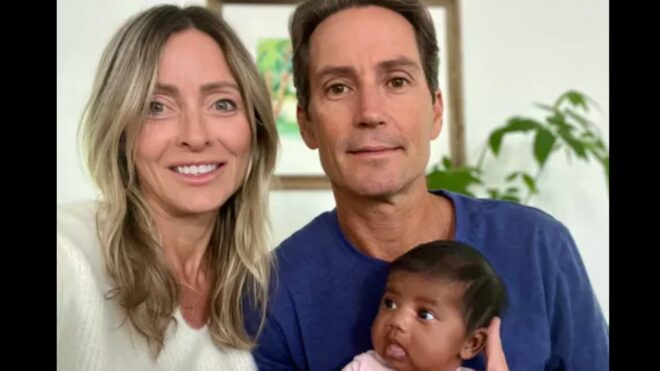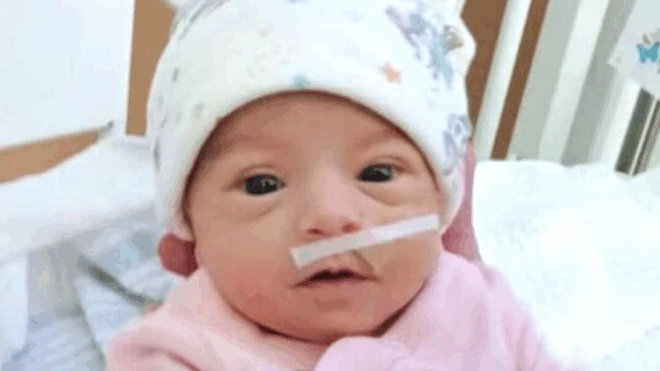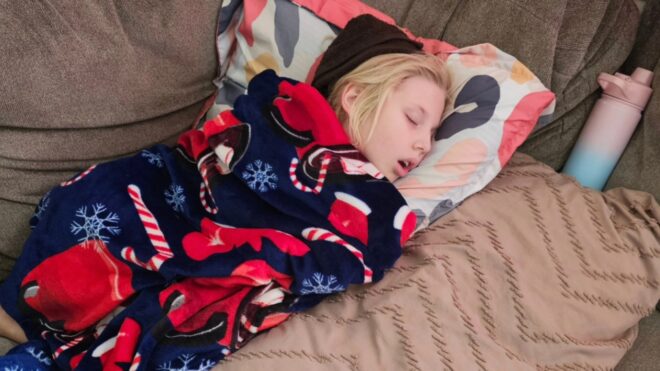
I became a mom over six years ago, but I will never forget the first months after coming home from the hospital. As a recovering perfectionist, I fought my urge to consume every single article about parenting when I was pregnant. I just wanted to go with the flow. And I had the same mindset about breastfeeding.
I knew about the health benefits because of my studies at university so subconsciously, I wanted to it to work out. Maybe she'd magically latch with ease and my supply would be boundless. I told myself that I would try, but not be too hard on myself if I couldn’t do it. I had a feeling it wasn’t going to be easy. My mom told me she only breastfed us for a month before stopping. I thought I had set realistic expectations.
But then I gave birth. And when she was placed in my arms with my naked breast near her little mouth, she already started rooting. I tried to get the latch right. Either her mouth was too small or my nipple was too big, but we couldn’t seem to figure it out. A shooting pain would rip through my entire body every time she latched as I clenched my jaw and grimaced.
I was determined to keep trying.
Every day and night, for all 10 to 12 feeds, it was agonizing. I got help. I had my latch checked by a lactation consultant multiple times and they all told me it was fine, that I just needed to stick it out a little longer. It will get better. My supply was healthy. I tried a nipple shield. Everything was going as it was supposed to go.
Dread and fear would consume me as I watched the minutes tick away before I had to feed her again. I told myself it would get better. Her mouth would grow bigger. We would get into a flow.
I played a mental game with myself.
Every time I wanted to stop, I would guilt trip myself by looking up the health benefits of exclusive breastfeeding depending on how long I did it. From SIDS, asthma, ear infections, and diabetes to obesity, the longer I did it, the more I was able to protect my daughter.
Reading those benefits, again and again, would convince me that if I didn’t continue breastfeeding, I wouldn’t be giving her the best chance at a healthy life and I would be a bad mom because of that.
At around two months, it did get a lot better and we got into a good swing of things. For the next three months, it was breastfeeding bliss, with no pain, no ripped nipples, no thrush or vasospasm. It became a routine. She’d get hungry and I provided her nourishment.
Then at five months postpartum, I developed a deep cut on the nipple of the breast that had the better supply.
It was a major setback. I thought I was out of the woods but all the pain came back, only 10 times worse this time. The cut became infected and I developed mastitis. I had joint pain, chills, and a skyrocketing fever. I felt like a complete failure. I would look at my daughter and become disappointed in myself. If I couldn’t even feed her in the “best” possible way, what use was I to her? I re-read the benefits and amped myself up for every feed.
One night during a 2 a.m. feed, I was checking my Facebook when I stopped at a photo of a woman who went missing and was found dead. Her name was Florence Leung. She struggled with postpartum depression. Her face with the long black hair, glasses, kind smile, and slanted eyes stared at me and imprinted my mind while my daughter struggled to latch on for the fifth time. She was around the same age. She was also Asian. She lived less than 20 kilometers away from me. Her child was close in age to mine. She had vanished in the middle of the night, never to return to her family.
I re-read the short clip again.
Big, fat tears rolled down my cheek and landed on my phone. A wave of immense sadness rolled over me. But then I saw that her husband had written a Facebook post dedicated to all mothers with postpartum depression. The words I took to heart that I still remember to this day were: “You are Not alone. You are Not a bad mother. Do not EVER feel bad or guilty about not being able to 'exclusively breastfeed,' even though you may feel the pressure to … ”
Although this couple were strangers to me, I felt genuinely connected to them. Their tragedy and devastating loss forced me to reflect on what I was doing to myself. It gave me the permission to take care of my mental health, the permission I desperately needed. I had become an empty shell, riding a dangerous wave of self-destruction.
It was that night that I decided to start weaning.
Over the next couple of weeks, we began supplementing with formula. She was completely weaned before she reached 6 months. The old me would have said I should have stuck it out, ruminating over all those benefits of exclusive breastfeeding for six months that were etched into my brain. But I don’t associate this decision with failure. I’m proud of myself for treating myself with compassion, having the courage to face my fears and most importantly, prioritizing my mental health so I can be present for my children.
To any mothers struggling with breastfeeding or in their postpartum journey, please seek help. I urge you to talk to someone. You aren’t alone in this. You have a choice to feed your child in the way that works for you. Fed is best.
Note: If you or any of your loved ones are struggling with suicidal thoughts, you can always reach out to the 988 Suicide & Crisis Lifeline by calling 988. They are available 24/7 by phone or online chat.




